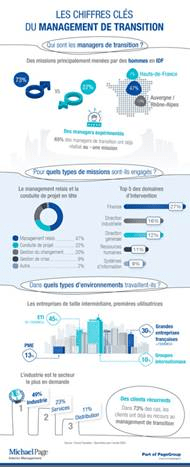Origins
Interim management originated in Anglo-Saxon countries (the United Kingdom, the Netherlands) as a response to the pressing need for rapid transformation or interim leadership. In France, it has been structured since the 2000s, but it is only in recent years (post-2015) that the market has taken on a substantial dimension.
Definition
According to the official definition by France Transition: "Interim management is the use by an organization (private, public, or non-profit) of external operational management skills for the purpose of accomplishing a specific mission over a limited period of time. Thus, an interim management assignment always has a specific objective and, by definition, a beginning and an end."
In other words, interim management is the temporary provision of an experienced executive who takes on full operational responsibility for a function or project, with clear objectives, for a fixed period (often from a few months to 1-2 years). The interim manager does not just advise: they decide, act, manage, integrate internal teams, reorganize, transform, and leave once the assignment is complete.
Interim Management Market - Key Figures
See infographic at the end of the article.
Functions involved in Interim Management
Although Interim Management can cover a wide range of functions, it most often addresses:
· General Management, members of the Executive or Management Committee,
· Support functions: HR, Finance, IT, Quality, Communications, Marketing, etc.
· Operational functions: Industrial site management, Sales management, Supply chain management, etc.
· Cross-functional project management
Regardless of the functions involved, Interim Management assignments all have the following in common:
- Urgency: the need to act quickly,
- Complexity: specific strategic, managerial, and operational skills are required,
- Sensitivity of the situation: finding a solution that is generally quick and constructive,
- Significant managerial impact on the organization's resources, operations, and results.
When is Interim Management useful?
If you are an expert in this type of situation, you may be of particular interest to companies wishing to:
§ Carry out exceptional one-off projects with high stakes: managing a large-scale redundancy plan, a merger/acquisition or business unit divestiture project, the integration of a new entity, the outsourcing of a department, support for an IPO, etc.
§ Providing "interim management": stepping in at short notice to replace a senior executive in an organization until their replacement arrives.
§ Supporting growth: developing international greenfield activities, launching a new product, implementing a new CRM tool, rolling out a new IT system in the subsidiaries of a large group, etc.
§ Supporting crisis or inertia situations: financial recovery, restructuring of activities and resources, etc.
§ Leading transformations, supporting change: any situation involving a profound transformation such as a change in strategy, a change in business model, a digital transformation, the introduction of AI into the company's value chain, etc.
Who is it for? When should you explore the option of interim management?
Interim management is not for everyone, and it is not a random choice.
Here is the profile and career stage for which this alternative is relevant:
- Experienced executives: mature professionals with more than 20 years of experience who have held management, executive, or board positions. Their sector expertise, strategic vision, and operational experience make them immediately effective and credible for leading high-stakes assignments.
- Executives in career transition: experienced executives as above who wish to bounce back in a different way than with a permanent contract after a setback (e.g., dismissal) or any other situation (e.g., return from expatriation, end of contract, etc.).
- Professionals seeking a change: often aged between 40 and 55, some executives feel that their career has plateaued, are frustrated by the lack of internal prospects, or feel the need to break out of a rigid hierarchy.
- Executives seeking freedom and flexibility: most often, people seeking a better work-life balance who want to choose their assignments, alternate between periods of activity and rest, and no longer depend on the decisions of a hierarchy as in a permanent position.
- Highly qualified executives or managers determined to make a difference: individuals who enjoy creating meaningful, sustainable change within the companies where they work. They like to make quick decisions, structure things in a hurry, and generate concrete results rapidly. They are perfectly at ease in "VUCA" (Volatile, Uncertain, Complex, and Ambiguous) environments and have the personal resources (intrinsic human qualities, skills, network, resilience) to succeed as soon as they start a mission.
Advantages and limitations
Advantages
- Visible impact from the outset: joining an organization with a clear mandate, often in urgent situations, with good visibility of the expected outcome.
- Diversity of assignments: sector, size of organization, type of transformation. Each assignment is different.
- Autonomy and responsibility: little hierarchical supervision, strong decision-making, freedom of speech, visibility with senior management.
- Often attractive compensation: the average daily rate is high, given the expertise and urgency.
- Network and reputation development: successfully completing several assignments establishes long-term legitimacy.
Limitations/constraints
- Irregularity of assignments: alternating periods of very heavy workloads with periods without assignments, which requires good cash flow management and prospecting.
- High pressure: organizations generally have high expectations, deadlines are often tight, and results are needed quickly, sometimes in delicate contexts (internal resistance, crises).
- High responsibility and exposure: most often sponsored by the organization's senior management or shareholders, visibility among executives is therefore high and the margin for error is low.
- Possible isolation: as an external consultant, most of the time you are alone in managing teams without having any hierarchical link with them, which highlights the importance of cross-functional management, persuasion, and quickly building trust.
How do you become an interim manager?
1. Clarify your value proposition
Identify your areas of excellence—sector expertise, functional know-how, iconic achievements—and distinguish between what motivates you and what you now want to avoid. This clarity immediately positions you as a differentiating player.
2. Take the pulse of the market
Confront the realities of the field: attend conferences, join recognized interim management networks, build relationships with specialized firms, and register with them to establish your visibility among these same decision-makers.
3. Build a solid professional portfolio
Develop a mission-oriented resume, illustrated by your tangible successes and, if possible, by testimonials from executives.
4. Choose your status
Self-employed, wage portage, or intermediation via a specialized firm: each status has tax, social, and contractual implications. Make a strategic choice in line with your career goals and risk tolerance.
5. Strengthen your skills
Update your knowledge of transformation methodologies, change management and support, crisis management, and tools specific to your sector. Mastering these levers will strengthen your credibility and your ability to take action.
6. Master the art of prospecting and negotiation
Learn to quickly detect signs of need within an organization, formulate a distinctive proposal, secure a contract, and then manage the exit and inter-assignment phases with agility.
Conclusion
The interim management market is driven by the agility of experienced managers and the growing need for companies to find quick, effective, and independent solutions.
If you are an experienced executive looking for high-impact challenges in uncertain environments,
if you want more autonomy and immediate power to act with freedom of speech that is free from political issues,
and if you have a taste for challenge and risk,
Interim Management is a serious alternative to traditional permanent contracts, so why not you? 😊
If, after reading this Career Newsletter, you still need some clarity about this type of work, if you want to explore this market and its developments further, and if you want to think about your own affinity for this role, the IESEG Network Career Development Center has thought of everything!
Take advantage of this opportunity to participate in the webinar "Interim Management: Why not you?" on October 13, 2025, at 12:30 p.m., hosted by Caroline Jumelle and Alain Doudard, Senior Advisors at Robert Walters Interim Management. They will share their expertise and feedback from the field. After the webinar, they will answer any questions you may have on the subject.
Elizabeth TOUCAS – Executive Strengths Coach & Career Manager – IÉSEG Network
For personalized support in Executive Coaching or for any information about the Career Development Services, please contact me:
e.toucas@ieseg.fr or +33 (0)6 85 33 01 57.
Infographic:
Source: Michael Page Interim Management


Comments0
Please log in to see or add a comment
Suggested Articles

![[CAREER NEWS] Interim Management: why not you?](/medias/image/105130811368ca6fd7b44c0.jpg)